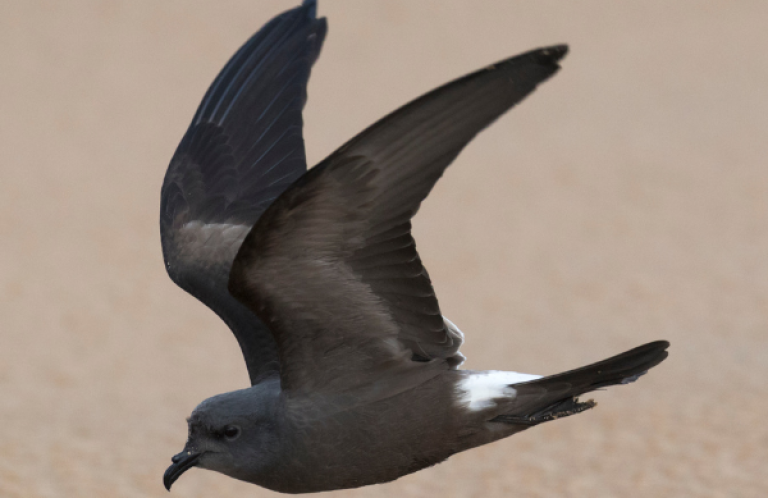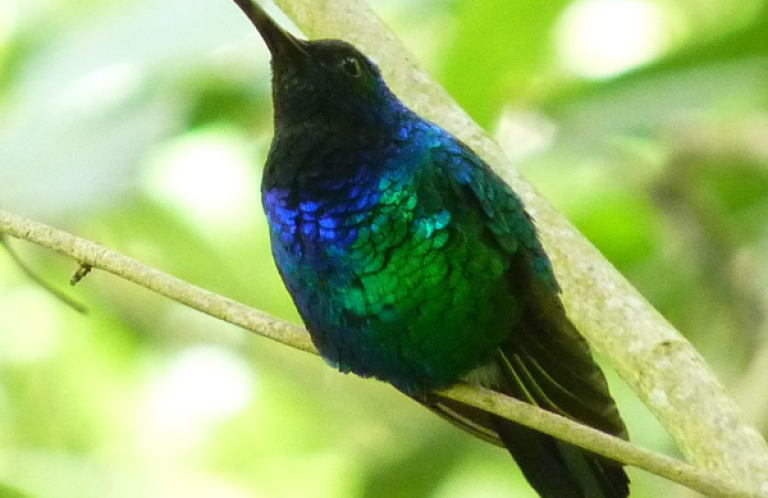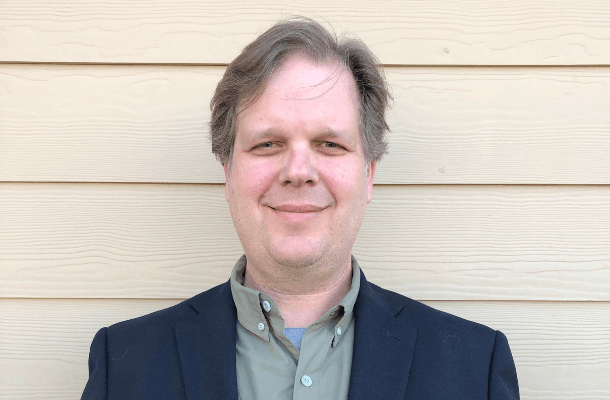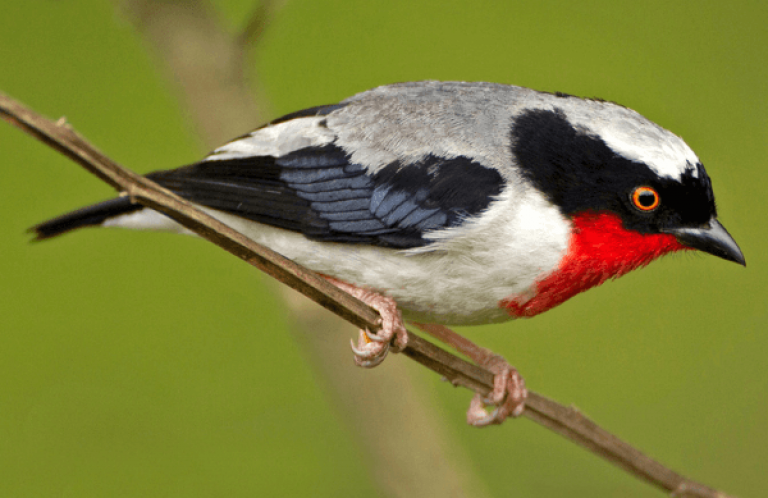Federally Protected Birds at Risk from Expansion of Wind Development Near Lake Michigan
 |
| The endangered Piping Plover is one of many federally protected bird species that are at risk from the proposed expansion of Heritage Sustainable Energy's Garden Peninsula Wind Energy Project. |
(Washington, D.C., September 3, 2014) Two bird species federally listed as endangered, the Piping Plover and Kirtland's Warbler, as well as many other federally protected birds are at risk from the proposed expansion of Heritage Sustainable Energy's (HSE) Garden Peninsula Wind Energy Project near Lake Michigan, according to American Bird Conservancy (ABC).
The warning from ABC came in a letter provided by the organization to U.S. Fish and Wildlife (FWS) Service Midwest Regional Director, Tom Melius.
The Garden Peninsula Wind Energy Project is located in Delta County, Mich., on the northern shores of Lake Michigan. The development presently consists of 14 turbines, each 485 feet tall, built in 2011-2012. The proposed action would expand the development with additional turbines of the same size in at least two more nearby locations.
ABC says that expansion would threaten a major route traveled by migratory birds and raptors, including federally protected Bald Eagles. The endangered Piping Plover and Kirtland's Warbler, as well as the eastern red bat, occur in this area, triggering serious Endangered Species Act (ESA) concerns.
ABC's letter, which was signed by Dr. Michael Hutchins, National Coordinator of ABC's Bird Smart Wind Energy Campaign, says that this wind project may be “… another glaring example of the failure of the current voluntary guidelines to protect our public trust resources. The poor siting of this project, along with the failure of HSE to develop appropriate conservation plans, is an egregious violation of the voluntary guidelines, and the prospect of HSE greatly expanding this project is even more worrisome.”
“There are relatively few places where wind development would be much worse for birds than Michigan's Garden Peninsula,” said Hutchins. “The development is in a key migratory corridor, is located very near another such corridor, and is in close proximity to three designated Important Bird Areas, including a critical breeding area for the endangered Kirtland's Warbler, which lies just to the east.”
The project was strongly opposed by FWS in a November 4, 2011, letter to project developers. FWS stated: “… construction of a commercial wind energy development on Garden Peninsula is likely to pose a very high risk for avian mortalities, including a high risk for Bald Eagle mortalities. … you have failed to sufficiently collect and analyze comprehensive information concerning avian use of the project area prior to construction. … the Service recommends that you reevaluate your project and select an alternative location with less potential for impacts to federally protected wildlife.”
Hutchins hopes that the project will “trigger intensive monitoring efforts by FWS to ensure that federally protected species are not being impacted. Furthermore, if any federally protected species are killed in the absence of incidental take permits, then HSE should receive the maximum penalties under the law, including the threat of a complete and permanent shutdown.”
Landowners who live in close proximity to the Garden Peninsula turbines have now engaged a legal team to help in their battle with wind developers. “Homeowners are experiencing declines in their quality of life because of the turbines, and they are concerned about impacts to birds, especially eagles and endangered species, due to the placement of the turbines in a migratory flyway,” said attorney Susan Hlywa Topp, who along with attorney Michelle Halley represents residents of the Garden Peninsula.
ABC asserts that no Environmental Assessment (EA) or Environmental Impact Statement (EIS) had been conducted for this project to assess risks prior to construction, and that no incidental take permits under the Endangered Species Act (ESA) or the Bald and Golden Eagle Protection Act (BGEPA) have been applied for to date, even though the facility is operational.
Furthermore, no data on the movements of nocturnal migrating birds over the site has been made available. In its letter, ABC asks if FWS plans to institute regular spot inspections of the property to ascertain whether federally protected birds or bats are in fact being taken illegally, and, if so, how often those inspections will occur.
Under FWS' current voluntary permitting guidelines for wind energy development, HSE is not required to apply for incidental take permits under the BGEPA or ESA because the project sits on private property. However, if the federal voluntary guidelines were adhered to—as is recommended by FWS and as the wind industry regularly claims is the case—such permits would have been applied for and environmental studies, either an EA or an EIS, would have been carried out. ABC asserts that any killing of federally protected wildlife constitutes a federal offense and in the event that does occur at this facility, HSE should then be penalized to the full extent of the law, especially given that no incidental take permits were requested or studies carried out.
“Under the current nonregulatory federal guidelines, the only way that FWS will find out whether federally protected species are killed is if HSE voluntarily reports the deaths,” said the ABC letter, “something that is unlikely to occur when the company is faced with the threat of a large fine, obligatory and expensive mitigation or compensation. ABC finds this highly problematic. This is precisely why ABC has argued for mandatory, rather than voluntary, permitting guidelines for wind energy development.”
ABC supports the development of clean, renewable sources of energy such as wind power, but also believes that it must be done responsibly and with minimal impact on our public trust resources, including native species of birds and bats and particularly threatened, endangered, and other protected species, such as Bald and Golden Eagles. In the case of wind energy, careful siting and mitigation is crucial to prevent unintended impacts to our country's native bird and bat species. The risks can be substantial, depending on the circumstances. ABC supports Bird Smart Wind Energy, which is described in detail on its website.
ABC's efforts to establish Bird Smart wind energy in the U.S. are made possible in part by the generous support of the Leon Levy Foundation.


















































